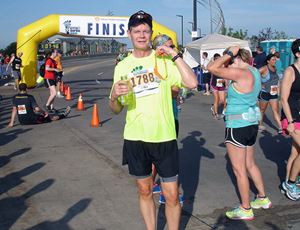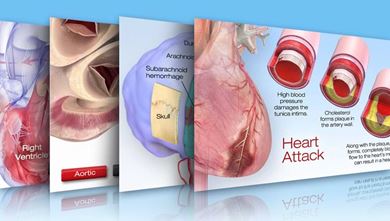Meet Mark Ridder - AHA Heart Valve Ambassador
Video: Mark's Aortic Stenosis Story, Part 1
Mark Ridder didn't understand why he was always winded when he played as a child until doctors diagnosed him with a heart murmur at age 14.
Still, he engaged in moderate activities — because he didn't want the same plight of his father, who developed heart disease and had his first cardiac event when he was just 39.
"I saw how it limited his life and ability to function, and I knew I didn't want that to happen to me,” said Ridder, whose dad's atherosclerosis led to his death at 68.
Despite Ridder's efforts to be healthy, doctors discovered during his early 40s that he had a bicuspid aortic valve — one that has only two flaps called leaflets instead of three — and calcium buildup prevented the valve from opening and closing properly. Turns out, he had it since birth.
Then, in his late 50s, he had heart palpitations, was often short of breath and tired easily. He chalked it up to aging.
But it was much more. It was aortic stenosis.
With aortic stenosis, blood flow within the heart is restricted due to a narrowed valve opening caused by thickening, stiffening or fusing. This makes the heart work harder to pump blood through the valve and the body doesn't get enough oxygen to function well.

So in November 2012, Ridder had valve replacement surgery, then 12 weeks of cardiac rehabilitation.
Ridder, an American Heart Association Heart Valve Ambassador for the last five years, says he feels great now. He even runs regularly.
"I've had the opportunity to form lasting relationships with the other Ambassadors and to learn from their personal experiences and our ongoing training with the AHA,” the Wichita, Kansas resident said. "Being an Ambassador also gives me credibility in the community when I reach out to organizations and media in my ongoing efforts to raise awareness about heart valve disease and the treatment options that are available.”
Even during the COVID-19 pandemic, Ridder has helped others with heart valve disease via the AHA's online Support Network.
"It's not the same as person to person, but it's important and helpful to those seeking information and support,” he said.
Video: Mark's Recovery Story, Part 2






